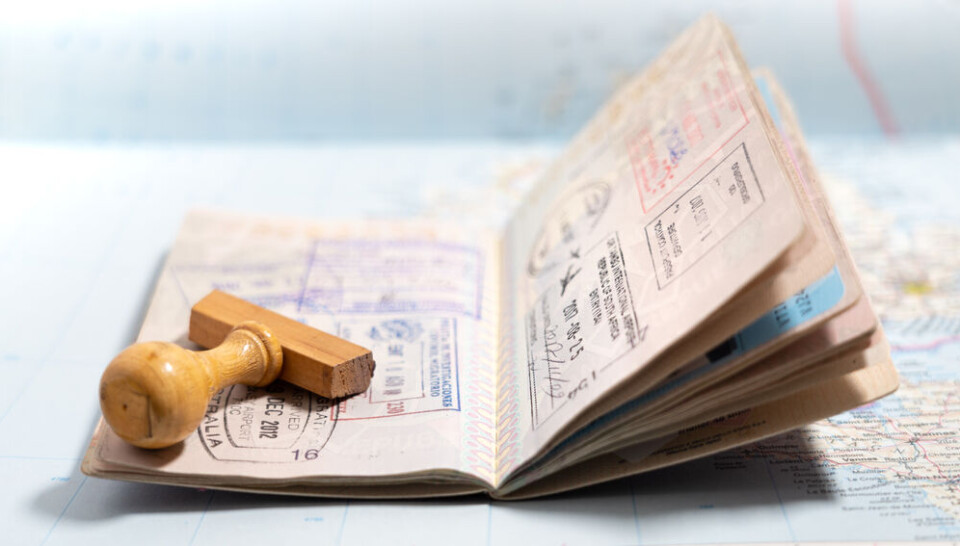-
New cyberattack hits La Poste parcel and banking service
Many services were unavailable for much of New Year’s Day. Personal data is reported to be safe
-
Burglaries in Dordogne: Signs that show a home is at risk
A series of break-ins have been reported over the Christmas period
-
SFR customers in France warned to be vigilant following cyberattack
Data from potentially millions of customers were taken following data breach
Under what circumstances can French police ask to see my ID?
France has rules on who can check which documents, when, and why. We explain

Reader question: I do not have French nationality. When in France, when are French police (and/or others) allowed to ask me to prove my identity, and what are the rules surrounding authorities and identity requests for foreigners?
There are clear rules surrounding document checks and police ID requests for foreigners (people who do not have French nationality) when in France. These are outlined on the government website here.
We summarise.
Who can check a foreigner’s papers?
Law enforcement officers are typically some of the only officials who are permitted to carry out identity checks. Those authorised include:
- Officier de police judiciaire, OPJ (judicial police officer), and deputies: Police officer or member of the gendarmerie who is authorised to carry out investigations, including taking people in police custody. Those working under the direction of the public prosecutor, and/or the control of the investigating chamber.
- A customs officer: For example, if the foreign national enters a customs territory, including an area or territorial waters of mainland France, Corsica, the French islands bordering the coast, and the overseas departments of Guadeloupe, French Guiana, Martinique and Réunion.
In what circumstances can a foreigner be asked for papers and/or ID?
There are three main types of inspection.
- Preventive checks: A check by police, regardless of your behaviour, in a bid to ensure safety.
- Checks linked to an offence: The police may ask you to prove your identity if they suspect you have committed or are attempting to commit an offence or breach of a legal sentence.
- To investigate and prosecute the perpetrators of specific offences: In such cases, the officer must specify the offences concerned, the location and the duration of the check.
This can include police action to combat illegal employment, perpetrators of serious offences (terrorism, arms and explosives trafficking, drugs).
Police can also check ID to prevent and investigate offences across borders, even within the Schengen area.
This includes Austria, Belgium, Croatia, the Czech Republic, Denmark, Estonia, Finland, France, Germany, Greece, Hungary, Italy, Latvia, Lithuania, Luxembourg, Malta, the Netherlands, Poland, Portugal, Slovakia, Slovenia, Spain, and Sweden.
It also applies to the non-EU Schengen countries of Norway, Iceland, Liechtenstein, and Switzerland.
Checks may last a maximum of 12 consecutive hours in the same place, and can be carried out in the following areas:
- Within 20 km of a border
- On a motorway or on a train
- At and nearby ports, airports, railway stations
What other checks can a foreigner legally be asked for?
Police can also ask any foreigner for papers, but only in places open to the public (stations, airports, cafés, roads, etc).
This can only happen if there is reasonable cause to believe that the person is a foreigner, for example, they are driving in a vehicle registered outside of France, or they are handing out leaflets or marketing material in a foreign language.
These types of ID check may not be carried out for more than six consecutive hours in the same place, and cannot be systematic checks of people present or moving around the premises.
What papers or documents should be provided?
For a short stay
For stays of up to 90 days, foreign nationals must present a passport and a valid visa, unless they are from a visa-exempt country.
For a long stay
If staying for longer than three months, the foreign national must present one of the following documents:
- Long-stay visa (visa de long séjour), valid for a maximum of one year
- Temporary residence permit (Carte de séjour temporaire), valid for a maximum of one year
- Multiannual residence permit (Carte de séjour pluriannuelle), valid for up to four years
- Residence permit (Carte de résident), valid for 10 years or indefinitely
- Retirement permit (Carte de séjour portant la mention retraité), valid for 10 years
- Receipt for first application, renewal or duplicate residence permit (Carte de séjour)
- Certificate of application for asylum
A European citizen from the EEA can enter France freely and stay without a residence permit.
This includes those from Austria, Belgium, Bulgaria, Croatia, Cyprus, Czech Republic, Denmark, Estonia, Finland, Germany, Greece, Hungary, Iceland, Ireland, Italy, Latvia, Liechtenstein, Lithuania, Luxembourg, Malta, Netherlands, Norway, Poland, Portugal, Romania, Slovakia, Slovenia, Spain, Sweden, and Switzerland.
What does a foreigner risk if they are unable to, or do not, present the right papers at a check?
Foreign nationals who are unable to produce the correct documents may be taken to a police or gendarmerie station. They may be detained there until their right to remain in the country is verified.
Related articles
What are valid forms of ID in France and must I always carry one?
Why are France’s new identity cards translated into English?
Can you visit the UK with a French carte d’identité?
























